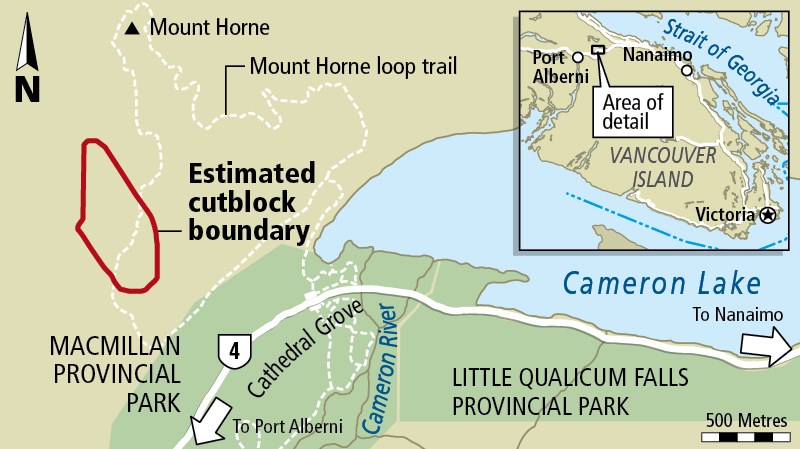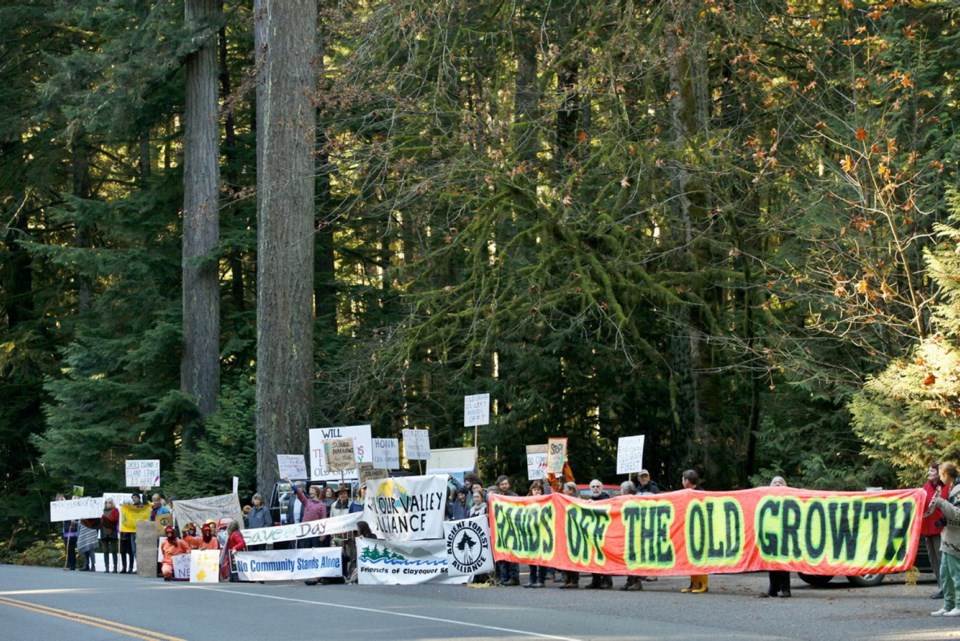A new logging road through a formerly protected old-growth forest near Cathedral Grove has conservation groups, and one area MLA, worried that the area’s habitat is under immediate threat.
“I was in the area last [month] and saw they started logging a road,” said Jane Morden of the Port Alberni Watershed-Forest Alliance. “Once it’s in, they can basically log it any time they want.”
Island Timberlands, the company that owns the land, also has closed south-ridge access to the Mount Horne trail — a popular hiking and mushroom-picking area.
The area of concern is a marked 40-hectare cutblock, 300 metres from MacMillan Provincial Park and directly upstream from Cathedral Grove, an international tourist destination known for its ancient Douglas fir trees.
“This will fragment a forest cover and could damage wildlife habitat,” said Ken Wu of the Ancient Forest Alliance. The organization joined others last month in a demonstration against the logging expansion. They’ve also started a campaign to pressure lumber producers to stop buying old-growth wood.
The area is part of 88,000 hectares of privately held land the provincial government allowed to be removed from a tree farm licence in 2004 — with the agreement that critical winter habitats be protected.
Scott Fraser, NDP MLA for Alberni-Pacific Rim, said that when the land went to Island Timberlands, the agreement was cast aside.
“These areas were supposed to be left,” said Fraser, who has been working since 2006 to protect the land, including the Port Alberni watershed. “I have so many outraged constituents, including retired loggers who have never seen this kind of forest activity.”
Fraser said he has met with Steve Thomson, minister of forests, lands and natural resource operations, but has not seen any progress.
“At the speed they’re doing this, it will be gone in two years,” Fraser said. “All we’re asking is to slow down so we can try to protect this area.”
Thomson said he has responded to concerns about logging in the area. “I’ve explained to them that the land in question is privately owned by Island Timberlands, and that the company entitled to log its private forest land,” he said in an email.
He added that the company must comply with provincial acts protecting land, water, fisheries and species at risk while complying with heritage-conservation laws.
Thomson said that while he has had extensive discussions with Island Timberlands about continuing to protect winter ranges for hoofed animals, “this was not a mandatory requirement and, unfortunately, the parties were unable to reach an agreement.”
He said the province would have preferred to have a formal agreement with Island Timberlands to manage wildlife, but the company has indicated that it has its own plan in place.
Island Timberlands did not respond to requests for comment.




